The name of this pub recalls Henry Wreight (pronounced ‘rate’), who was a leading light in the development of Faversham in the 19th century. One the town’s two main benefactors, after his death in 1840, his bequest was used to provide schools, the recreation ground and almshouses. He was also three times mayor of Faversham.
A print and text about the King’s Faversham.
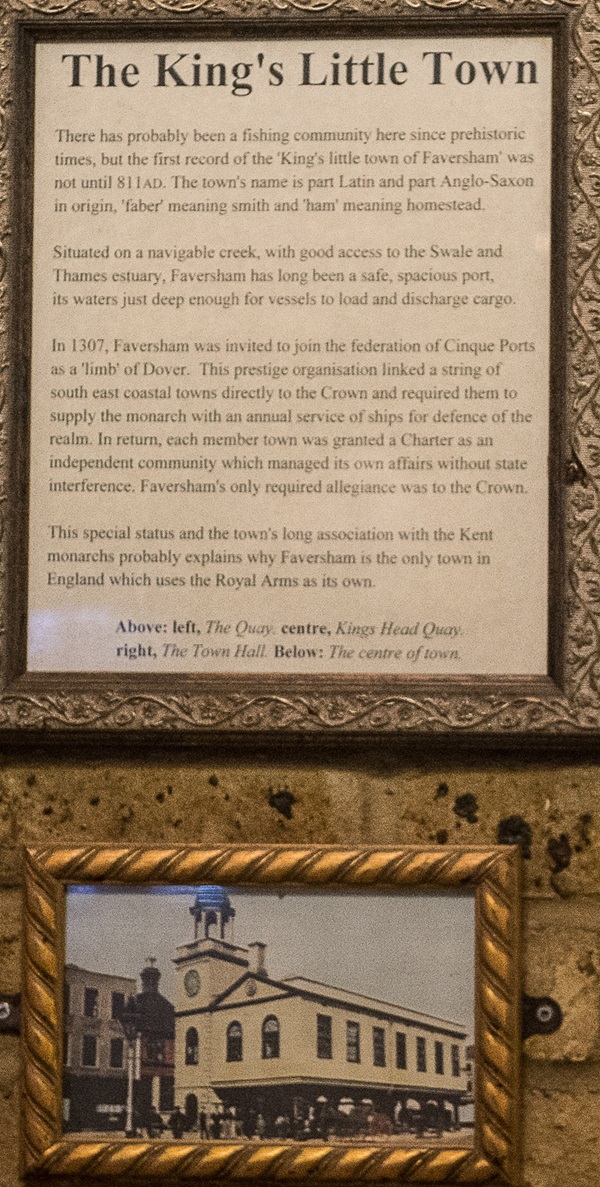
The text reads: There has probably been a fishing community here since prehistoric times, but the first record of the ‘King’s little town of Faversham’ was not until 811AD. The town’s name is part Latin and part Anglo-Saxon in origin, ‘faber’ meaning smith and ‘ham’ meaning homestead.
Situated on a navigable creek, with good access to the Swale and Thames estuary, Faversham has long been a safe, spacious port, its waters just deep enough for vessels to load and discharge cargo.
In 1307, Faversham was invited to join the federation of Cinque Ports as a ‘limb’ of Dover. This prestige organisation linked a string of south east coastal towns directly to the Crown and required them to supply the monarch with an annual service of ships for defence of the realm. In return, each member town was granted a Charter as an independent community which managed its own affairs without state interference. Faversham’s only required allegiance was to the Crown.
This special status and the town’s long association with the Kent monarchs probably explains why Faversham is the only town in England which uses the Royal Arms as its own.
Below: The centre of town.
A print a text about visitors to Faversham.
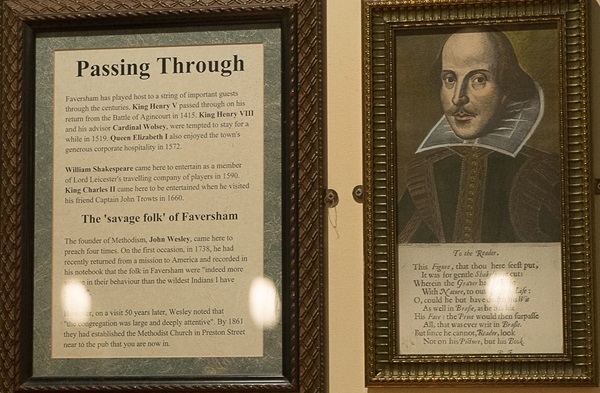
The text reads: Faversham has played host to a string of important guests through the centuries. King Henry V passed through on his return from the Battle of Agincourt in 1415. King Henry VIII and his advisor Cardinal Wolsey, were tempted to stay for a while in 1519. Queen Elizabeth I also enjoyed the town’s generous corporate hospitality in 1572.
William Shakespeare came here to entertain as a member of Lord Leicester’s travelling company of players in 1590. King Charles II came here to be entertained when he visited his friend Captain John Trowts in 1660.
The founder of Methodism, John Wesley, came here to preach four times. On the first occasion, in 1738, he had recently returned from a mission to America and recorded in his notebook that the folk in Faversham were “indeed more savage in their behaviour than the wildest Indians I have seen“.
However, on a visit 50 years later, Wesley noted that “the congregation was large and deeply attentive”. By 1861 they had established the Methodist Church in Preston Street near to the pub that you are now in.
Text about market days.
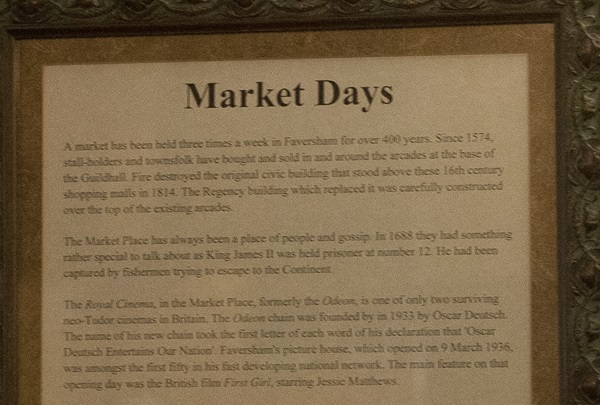
The text reads: A market has been held three times a week in Faversham for over 400 years. Since 1574, stall-holders and townsfolk have bought and sold in and around the arcades at the base of the Guildhall. Fire destroyed the original civic building that stood above these 16th century shopping malls in 1814. The Regency building which replaced it was carefully constructed over the top of the existing arcades.
The Market Place has always been a place of people and gossip. In 1688 they had something rather special to talk about as King James II was held prisoner at number 12. He had been captured by fisherman trying to escape to the Continent.
The Royal Cinema, in the Market Place, formerly the Odeon, is one of only two surviving neo-Tudor cinemas in Britain. The Odeon chain was founded by in 1933 by Oscar Deutsch. The name of his new chain took the first letter of each word of his declaration that ‘Oscar Deutsch Entertains Our Nation’. Faversham’s picture house, which opened on 9 March 1936, was amongst the first fifty in his fast developing national network. The main feature on that opening day was the British film First Girl, starring Jessie Mathews.
Far left: Oscar Deutsch
Left: King James II
Right: the Guildhall, Market Place.
A photograph of Court Street, Faversham, c1909.
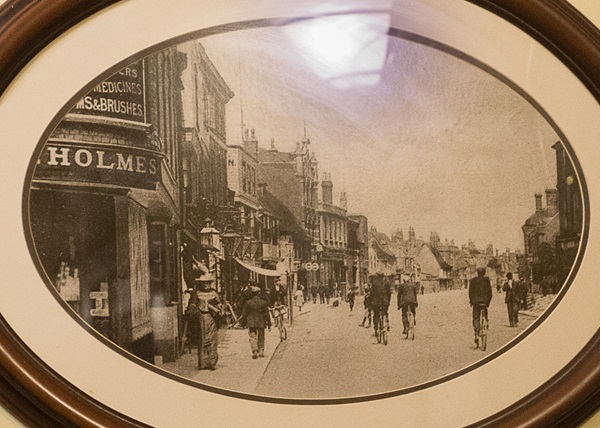
A photograph of West Street, Faversham, c1910.
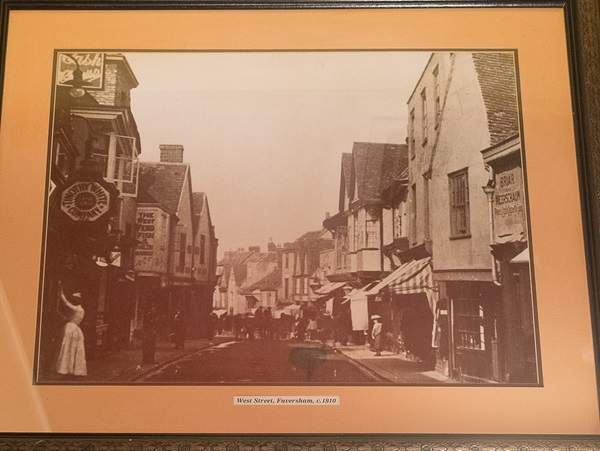
External photograph of the building – main entrance.
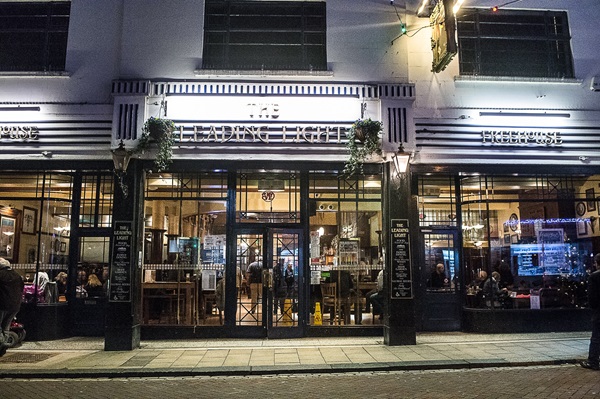
If you have information on the history of this pub, then we’d like you to share it with us. Please e-mail all information to: pubhistories@jdwetherspoon.co.uk